Admiral Fallow: An interview with the Scottish orchestral indie five-piece
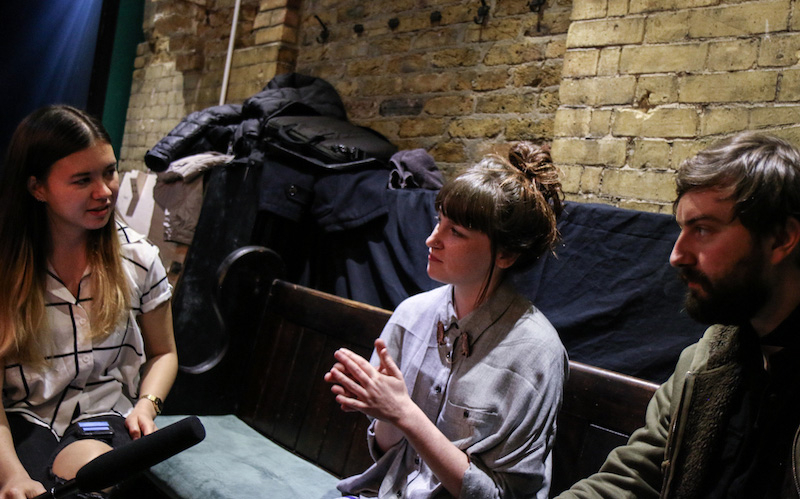
Admiral Fallow is an indie-folk quintet hailing from Glasgow. The group, formed in 2007 is made up of Louis Abbott (vocals, guitar), Sarah Hayes (flute, piano, vocals), Kevin Brolly (clarinet, vocals, keyboards), Philip Hague (drums, vocals) and Joe Rattray (bass, vocals). They have released three albums Boots Met My Face, Tree Bursts in Snow and Tiny Rewards, which was released earlier this year.
We caught up with Louis Abbott and Sarah Hayes before their show at Oslo Hackney on Saturday night. We chatted with them about their newest album, concert experiences as well as their personal musical inspirations.
Hi, thank you for your time. First of all, welcome back to London, we’re all excited to have you guys back. Have you done anything fun since you got here?
Louis Abbot: No, nothing fun, just straight to the venue for the sound check. There’s rarely a time when you really get to see any of the city.
What would you say is your favourite place in London?
LA: I got to have a really nice meal one time at one of Ottolenghi’s restaurants at Soho. It was the best meal I had in my life. It was far too expensive for me but I got to do it one time and that was pretty good.
Well, congratulations on the new album and vinyl. We think it’s great, we love it. Can you describe the album-making process?
Sarah Hayes: It was a little bit different to what we’ve done with the previous two albums. For those ones, the songs were written the other way round, so you would bring the lyrics either fully formed or maybe just a verse or a chorus, and we would arrange the music around that. Whereas this time, we started completely from scratch, so we just wrote the music altogether and Louis added his words afterwards on top, the opposite way round. It took a bit longer because it was a new process. It was quite challenging but hopefully of benefit. There’s more different bits of music and influences from everyone.
What would you say is your favourite song off the new album?
SH: You sort of go through phases especially once you’ve played them live. They kind of change and go through different stages. I enjoy playing Evangeline live, that’s quite fun. In a way it sums up the new song writing approach and the new sound; because it has a little bit of some of the new things we’ve been trying – like using the clarinet in a different way and little bits of programmed drums, and the way the song is structured is a little bit different from what we did before.
Like a lot of your fans say, Tiny Rewards has a different feel to it, compared to your first two albums. Is there a reason why you decided to change things up?
LA: We’ve been playing music together for five or six years at that time. It felt like it was natural that we approach things in a slightly different way. We could have easily made another album that sounded not too dissimilar to the first two, but it just felt like a natural time to shake it up a wee bit.
Your selection of instruments is very interesting. What was the reason behind the instruments you chose and how did that all come together?
LA: Originally we were just playing the instruments that we played, so Sarah would be playing flute and Kevin would be playing clarinet. We were already a band before we got into playing electric guitar stuff basically. We just added stuff as we went. That’s one of the reasons why the first record is based around a lot of acoustic instruments, and if you jump forward four or five years to now, we’ve added a lot more electronic elements to the mix, like aspects of drum machines and synthesisers, lots of pedals, lots of effects. You can hear a lot of that going on in the new record, compared to the first record. It’s really just whatever excited us and what interests us. But the woodwind thing in particular is something ever-present for us.
What would you say is your dream duet or collaboration?
SH: Well, Radiohead would be good, for watching.
LA: I think I’d probably feel too intimidated to be working with them, but that would be pretty good.
How would you describe your music in one word?
LA: Dance.
SH: Yeah, that’s quite good, for the new stuff.
Who or what inspired you to create the music you create?
SH: It probably varies for different people but I would say it’s almost an unconscious thing from all the different things you’ve listened to, music you’ve played, meeting each other and then you bounce off each other. That’s quite a vague answer but it just sort of bubbles away on its own level and then probably just comes out somehow.
Growing up, did you listen to music similar to yours?
LA: I don’t think it was necessarily similar to the music we make. I certainly listened to a lot of music when I was younger. Growing up, my mum and dad and particularly my older brother played a lot of music in the house, so I’d just hear stuff coming through the wall, anything from the Beatles to the Mars Volta to lots of stuff in between. The genre thing doesn’t really come in. If something’s really good – no matter what genre it is – if it excites your ears, you may take elements of that, whether you’re conscious of that or not.
Do you guys have a favourite artist or band?
LA: Not really a number one favourite. We all went to see Sufjan Stevens not so long ago when he toured and we’re all quite big fans of his. That was a particularly amazing show and the latest record is definitely one of his best, so that was quite a nice experience to share. I don’t really have an all time number on favourite. But that was an amazing show to witness, and how he took what is a simply-made album and translated that into a full blown show, which was particularly interesting. So that’s good for him.
Which song of yours best represents you or the band?
LA: Because I deal with the lyrical side of the music, most of the songs are quite personal to me, so I’ll just have all of them. The others can just do whatever they want.
SH: Maybe something like Building as Foreign from the most recent album. It uses personal themes of Louis and the new sound – there’s quite a lot involved in there and we all chucked lots of music at it. That would probably represent us all.
If we were to look at your music library, what would be your most recently played songs?
LA: I’ve actually got a playlist playing outside right now. There’s music on it by John Grant, Sufjan Stevens, the Walkmen, Sun Kil Moon, Natalie Prass. Stuff like that have been floating my boat.
What is the overall message of your music?
LA: Don’t know if there’s an overall message to be taken from it. All we’re trying to do is make music that hopefully people can relate to in some way, whether it’s something that excites them to listen to or something they can take from in terms of a lyrical point of view.
Any common themes throughout your songs?
LA: No, they’re all their own thing. I don’t think we’ve ever made an album, like a concept record for example, with a thread running through all of it. There are themes on this latest record that come up a little bit. There’s a fair bit of self doubt, possibly partly to do with making music in a new way and not really knowing what we were doing about that. The fear and excitement that comes with that sort of thing. We’re been making music for seven, eight years, so there’s not one thing that runs through it. I guess each record has its own place and time.
How does the reaction of the crowd changes between England, Scotland and continental Europe?
LA: One thing that’s pretty cool is that most of the crowds that come and see us are always quite attentive. We’ve been lucky enough to go and play in North America and Australia a couple years ago. Now matter where we go, it seems like people are quite attentive and like to listen to the songs, which is quite surprising, considering that dynamically, they’re all over the place. There’s a lot of stuff that’s quiet, downbeat and slower, and there’s some stuff that’s upbeat and almost party songs. It’s surprising when you come off a curve in the set that’s been quite up and people are still quite attentive. The general thing overall is that people are always up for listening.
What can we expect to hear tonight? Mostly new songs or a good mix?
SH: A pretty good mix across the three albums. We’ve enjoyed changing up the set list a bit over the last year. Since the album came out, we’ve done a few shows here and there. To begin with, it was quite new song heavy, trying to learn how to play them, as we recorded all these different layers. Learning how to recreate that live or reimagine it live was another challenge that came with it. We spent quite a while doing that, and since then we brought in a few more of the old ones. Hopefully it’s quite evenly balanced between them all.
What are you most excited about playing tonight?
LA: There’s a song that we pulled off the bonus disc of the vinyl release of this album, called Broughty Ferry, which is the newest thing we’ve worked out how to play. That’s still quite exciting because it’s still new and you’re still feeling your way around the chords. I’ll go for that one. It’ll definitely be a low point of the set because it’s quite slow and fairly sombre, but it’s exciting for me.
What is the most memorable show you’ve played, and why?
SH: We’ve done a good variety of different things and sometimes they’re memorable for different reasons. One nice one that we did was in Glasgow, it was coming towards the end of a tour, about this time three years ago. It was at a big venue in Glasgow and it felt like a nice homecoming. All our pals were there so that was a fun one.
If you had the chance, what would you tell 2007 Admiral Fallow?
LA: Give up. Stop right now.
SH: One of the things that’s quite funny is when you do something thing for a length of time, even though we’re not quite at the ten-year mark, that feels like a real milestone. I moved to Glasgow about ten years ago so it’s on my mind quite a lot. It’s interesting with the band because we just started out just as friends playing songs, but then it becomes more formalised and we’re like colleagues now as well. So probably something like, just remember where it all began, like the friendship side of it. When we wrote the most recent album, we went away to write it and that was important to get back to remembering that we’re pals but also workmates. Keep on truckin’.
LA: It was all quite easy for us for a long time. We never achieved any chart success or had any crazy world tours with any huge bands, but it was always on a nice gradient. With the way things go and the way the music industry works, we kind of plateaued a little bit but maybe that’s alright that that’s happened. It’s not easy making a living, doing what we’re doing. So I would’ve probably said, don’t worry if this isn’t always amazing – as long as everyone’s happy, just keep doing it.
Finally, what would you tell readers of The Upcoming?
LA: An interesting fact I recently learned, although I haven’t spoken to any people that would know the answer to whether it was true or not, is that apparently at any time, only one of your nostrils is working. Your brain subconsciously tells your nose to switch to the other nostril. So if you breathe out gently onto your finger, you
’ll feel that it’s only really coming out of one side at a time, because you don’t need both.
Okay… Well, thank you so much for your time!
Naomi Schanen
Read our review of Admiral Fallow’s concert at Oslo Hackney here.

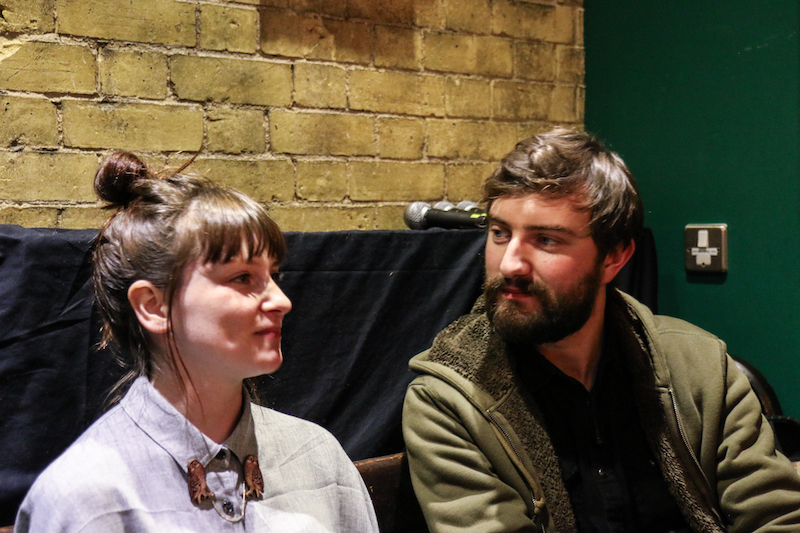
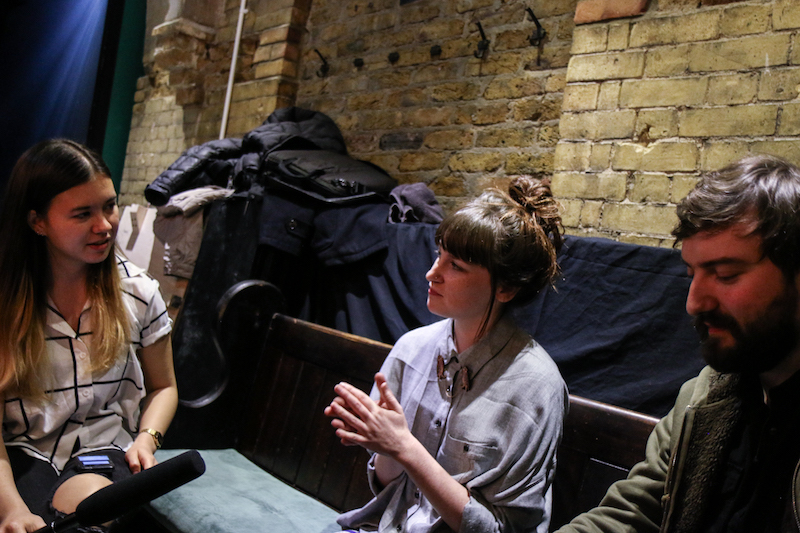
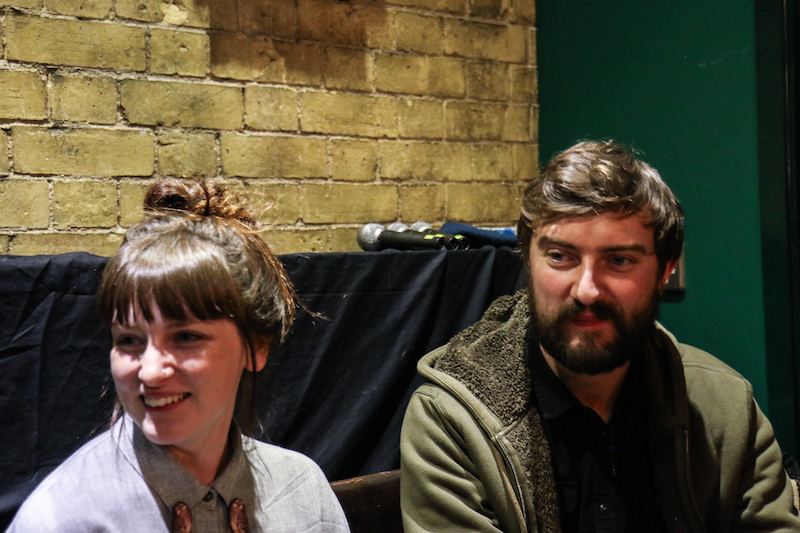
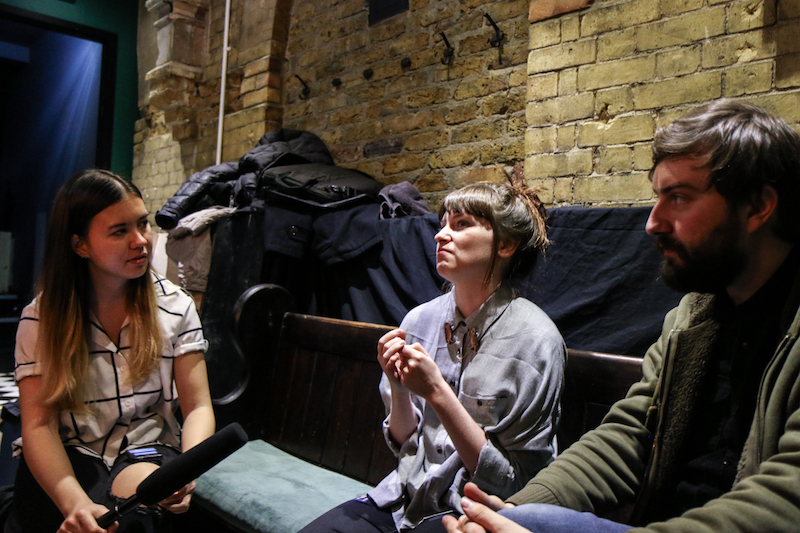


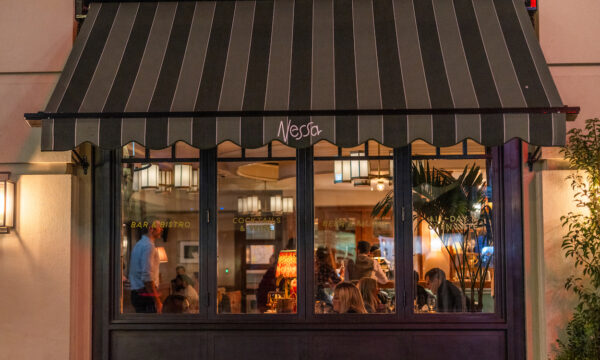


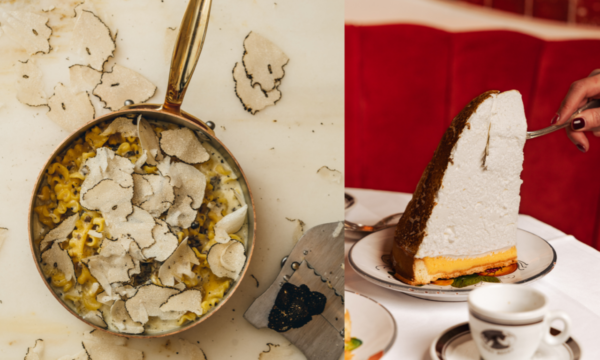
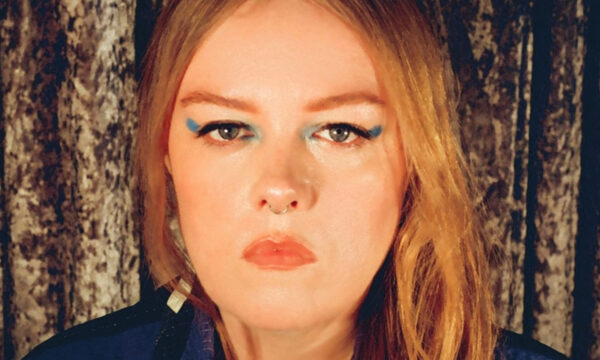













Facebook
Twitter
Instagram
YouTube
RSS